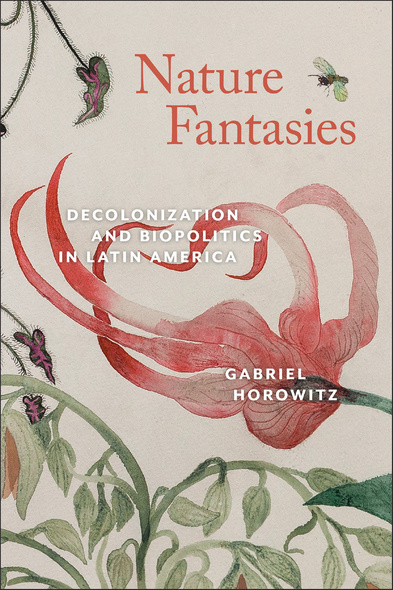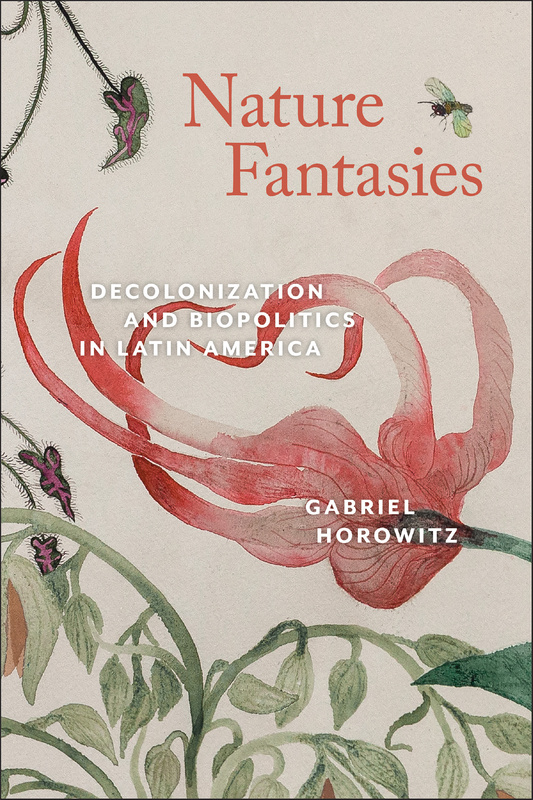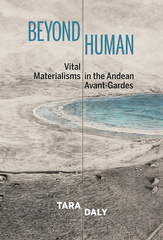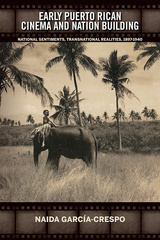
Nature Fantasies
Decolonization and Biopolitics in Latin America
In this original study, Gabriel Horowitz examines the work of select nineteenth- and twentieth-century Latin American writers through the lens of contemporary theoretical debates about nature, postcoloniality, and national identity. In the work of José Martí, Gertrudis Gómez de Avellaneda, Jorge Luis Borges, Augusto Roa Bastos, Cesar Aira, and others, he traces historical constructions of nature in regional intellectual traditions and texts as they inform political culture on the broader global stage. By investigating national literary discourses from Cuba, Argentina, and Paraguay, he identifies a common narrative thread that imagines the utopian wilderness of the New World as a symbolic site of independence from Spain. In these texts, Horowitz argues, an expressed desire to return to the nation’s foundational nature contributed to a movement away from political and social engagement and toward a “biopolitical state,” in which nature, traditionally seen as pre-political, conversely becomes its center.
Gabriel Horowitz’s Nature Fantasies is a ground-breaking book that explores the complex and contradictory construction of ‘nature’ in nineteenth and twentieth century Spanish American cultural production. Horowitz demonstrates how ‘nature’ as it is determined within this history is a figure both of what must be walled off—disciplined or controlled—and of what must be incorporated into the hegemonic sensibility. One of the important implications of Horowitz’s discussion of nature as both the outside and the inside of criollista cultural ideology is that the biopolitical developments of the twentieth century and beyond turn out to have their roots in colonial and post-colonial histories.
Horowitz challenges conventional approaches, particularly in recent environmental criticism, that see a return to nature as an emancipatory act (from the colonial period to today), when quite to the contrary, it might be a reifying act that further leads to a biopolitical state. Those committed to a rigorous Latin American ecocriticism will need and want to engage with this cross examination.
A study on the discursive history of nature in Latin America, Nature Fantasies is a far-reaching and well-documented intervention that offers fresh new readings of such classics as Gómez de Avellaneda, Martí, and Heredia. The author argues for the nineteenth-century signifier 'nature' in Spanish America as one housing criollo fantasies that aimed at superseding and erasing both indigenous histories of the region and the continent’s own non-human history. A readable theoretical intervention on our own historical uses of the word-concept 'nature,' this book is also a study that challenges, in productive ways, the very tenets of ecocriticism and what we do as ecocritics.
In its candid engagement with the modern Latin American literary canon, Nature Fantasies: Decolonization and Biopolitics in Latin America provides a succinctly written assessment of some of the limitations inherent to current paradigms of thought such as decolonial thinking and the environmental humanities. It makes a valuable contribution to contemporary debates on Latin America’s past and present.
A formidable and provocative examination of the role of nature thinking (and nature writing) in the historical transition from cultural decolonization to the modern biopolitical state in Latin America. A must-read for anyone interested in the ways nature and politics intersect.
Part I
1 The Natural History of Latin American Independence
2 Renewing Niagara Falls, Burning the Archive in the Cuban Poetic Tradition
Part II
3 The Fantasy of the Creole as White Indian
4 The End of History and the Return to Nature
5 The Garden, the Camp, and the Biopolitical State
Conclusion
Acknowledgments
Bibliography
Index






